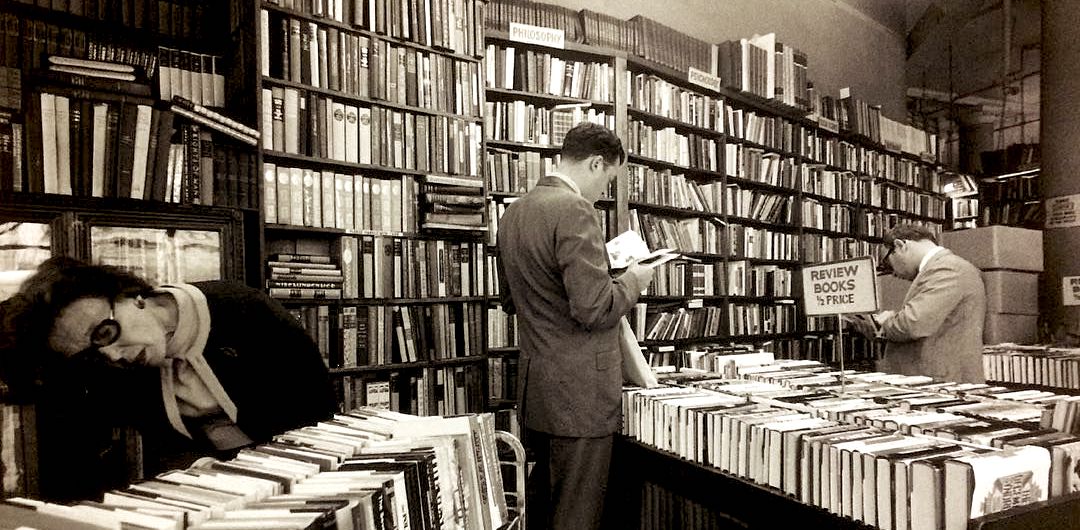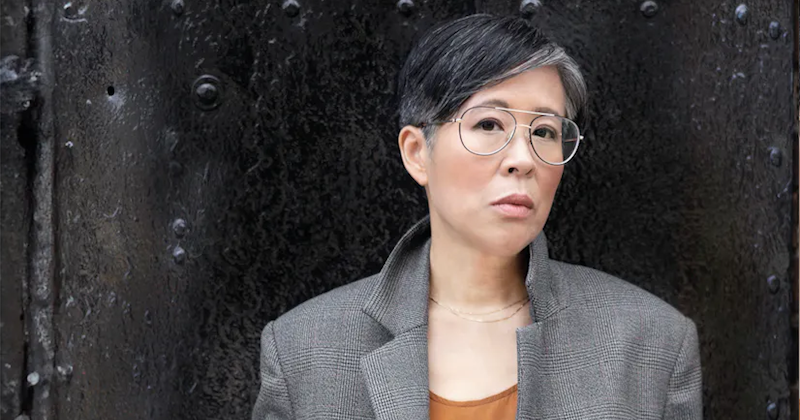Welcome to Darkenbloom, a town in Austria’s easternmost and least attractive province, on the border with Hungary. A town whose castle burnt down in 1946, whose count fled and whose tourist offerings amount to a crumbling plague column and a damaged altarpiece featuring small, feathered devils. A town where walls have ears and flowers have eyes; whose locals know all about each other, but who know nothing at all about each other, or about the past. Or so those shade-loving plants, the Darkenbloomers, claim.
In Eva Menasse’s expansive third novel, translated with aplomb by Charlotte Collins, it is 1989 and, suddenly, people are interested in digging things up. A stranger turns up in town, his mission to disinter the remains of murdered Jews from mass graves and rebury them individually. A group of students arrives to restore the overgrown Jewish cemetery. A young teacher, Flocke, is keen to establish a new museum of the border’s history. Some Darkenbloomers want to dig up the meadow and install a water tank. Perplexing events start to occur. A skeleton missing a hand is found in the meadow. Flocke disappears. A blond-bearded refugee from East Germany is discovered living in one of the local hunting cabins.
It feels as though these things ought to be connected. “I was certain: that there was a key to it, a code”, says Lowetz, newly returned to Darkenbloom having inherited his parents’ house. But Menasse’s brilliance is to evoke the sense of interrelatedness while subtly and relentlessly refusing to plug the gaps. Rumours, misrememberings, lost information and false information swirl around in a morass of silence.
Some things do rise to the surface. We learn that Darkenbloom’s Jews were deported during the war; that prisoners of war from the East were billeted in the castle and forced to participate in the construction of the so-called South-East Wall along the border. One night, local members of the Hitler Youth led the labourers into the forest, where the SS took over. Shots were heard and the Youth members had to fill in the graves. These admissions emerge only piecemeal and vaguely: “Yes, they had heard the shots, but they hadn’t been standing close by; he couldn’t remember exactly now, but no, he didn’t think so”.
In Darkenbloom, Menasse pulls off the trick of making us experience the scrappy, gappy nature of history. Though a master of detail, as in her endearing description of the grocer Grün reading out “the small print on the cummerbund around the balls of wool” that he sells to his elderly lady customers (20 per cent Dralon, 80 per cent polyacrylic) – the tone here reminiscent of Menasse’s whimsical first novel, Vienna (2005) – the author is also adept at writing incompleteness. The large cast of characters helps: it is deliberately difficult to keep track of stories and connections. Koreny, the acting mayor, an electrician by trade, gives a lesson in historiography as he prepares to refute the narrative that the town was a den of Nazis. “What if it wasn’t a question of truth at all, but of how it was put together?” Sterkowitz, the town doctor, likens Vergangenheitsbewältigung to repairing an imperfectly healed broken limb. “I don’t know enough about it”, he says when asked if he doesn’t believe in confession, atonement and forgiveness. “But if a bone has healed crooked and you’ve been walking about on it for years, you can’t make it straight. If you’re determined to try, you have to break it again. And then it would have to heal a second time.”
Having once experienced an influx of refugees – Hungarians fleeing across the border after the Soviets crushed the revolution in 1956 – Darkenbloom in 1989 is about to receive more strangers. Otto von Habsburg, president of the Paneuropean Union, and Miklós Nemeth, Hungary’s prime minister, are organizing the Pan-European Picnic, a peace demonstration on the Austrian-Hungarian border that will result in hundreds of East Germans holidaying in Hungary crossing into Austria and ultimately travelling on to West Germany. Some of the erstwhile Hitler Youth members eagerly welcome the new arrivals. This is no recantation, but a simple question of economics: the West German government will finance the hosting of the refugees.
Darkenbloom is an epic achievement that ought to take its place as an essential text of European literature, devastating in its portrayal of how atrocities are perpetuated and disavowed. But the phrase Farmer Faludi believes he hears the little feathered devils on the singed altarpiece whispering at the end could be taken as the basis for hope as much as for despair: “This is not the end of the story”.
Kate McLoughlin is Professor of English Literature at the University of Oxford and a Fellow of Harris Manchester College. She is currently completing a literary history of silence
The post Shrinking violets appeared first on TLS.

 By Times Literary Supplement | Created at 2024-11-27 16:50:21 | Updated at 2024-11-28 00:29:10
8 hours ago
By Times Literary Supplement | Created at 2024-11-27 16:50:21 | Updated at 2024-11-28 00:29:10
8 hours ago







